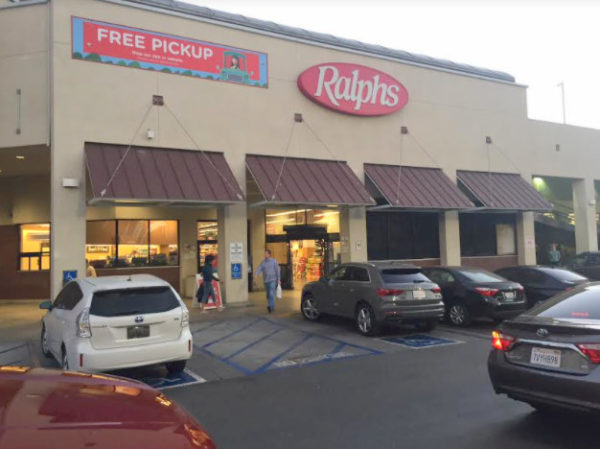
The “hero pay” movement continues to gain momentum. On the heels of West Hollywood last week passing a $5 per hour extra pay for frontline grocery workers for 120 days, the Los Angeles County Board of Supervisors has followed suit.
The Supervisors voted 4-1 Tuesday to adopt an urgency ordinance requiring national grocery and drug retail employers in unincorporated areas of Los Angeles County to pay frontline workers the additional $5 per hour hazard pay or “hero pay” for the next 120 days.
However, the California Grocers Association (CGA) filed a federal lawsuit against West Hollywood less than 24 hours after the ordinance was approved. It’s likely CGA will now file a similar lawsuit against LA County.
CGA also filed lawsuits against Long Beach and Montebello when those cities passed similar hero pay ordinances.
Meanwhile, as the city of Los Angeles City Council prepares to debate passing a hero pay ordinance on Wednesday, the city’s chief legislative analyst released a report on Tuesday showing that the $5 per hour extra pay mandate could result in various unintended consequences impacting both workers and customers.
Those finding suggest companies might:
- Raise prices to offset additional wage costs.
- Reduce hours and/or benefits for employees to keep costs under control.
- Lay off employees.
- Close under-performing stores.
- Create more “food deserts” where residents in some areas don’t have easy access to fresh groceries because of the store closures.
- Create greater “food insecurity” for low-income and fixed-income residents who would have less money to spend on food because of price increases.
“Extra pay mandates will have severe unintended consequences on not only grocers, but on their workers and their customers,” said Ron Fong, president & CEO of California Grocers Association. “A $5 per hour extra pay mandate amounts to a 28% increase in labor costs. That’s huge. Grocers will not be able to absorb those costs and negative repercussions are unavoidable.”
During Tuesday’s vote, Supervisor Kathryn Barger voted against the measure, set to take effect on Friday. She cited those unintended consequences and a concern that the ordinance only covers a “small sliver” of the essential workforce.
Supervisors Hilda Solis and Holly Mitchell co-authored the motion calling for the temporary “urgency” ordinance which, like the West Hollywood ordinance, would apply to store chains that are publicly traded or have at least 300 employees nationwide and more than 10 employees per store.
Solis pointed to store profits as one justification, noting grocery stores are experiencing record high profits.
“Grocery and drug retail employees have continued to report to work and serve our communities, despite the ongoing hazards and dangers of being exposed to COVID-19,” Solis said. “These workers, many of whom include older adults and single mothers, have put their lives on the line since the beginning of the pandemic to keep our food supply chain running and provide access to medicine our families need. Many are working in fear and without adequate financial support, while their employers continue to see profits grow and top executives receive steep pay bonuses.”
A widely cited report by the Brookings Institution studied the profits of the three largest grocery chains — Walmart, Kroger and Albertsons – and found that together they earned an additional $6.8 billion in profit in the first three quarters of 2020 compared with 2019 — an average increase of 98%.

The Kroger Company’s profits were high enough it was able to spend over $1 billion in stock buy backs. However, it should be noted many grocery chains, including Kroger, which own Ralphs and Food 4 Less, have invested hundreds of millions of dollars in safety measures to help protect employees from spread of the virus.
Supervisor Mitchell underscored that some of the workers, “who have continued to show up for all of us every single day, against great odds,” are among the most vulnerable county residents.
“The additional compensation …. will not fix all inequities, but will provide some reprieve,” Mitchell said, noting that some full-time employees “earn so little that they still qualify for many public benefits.”
Barger questioned whether anyone on the board had done a deep dive into the employers’ income statements and shared a statistic from the California Grocers Association pointing to an average annual profit of 2.2%.
Members of the United Food and Commercial Workers Local 770 thanked the board in a release following the vote.
“We have lost too many members to this virus and no end is in sight. The lack of hazard pay is even more shameful as these grocery and pharmacy companies have seen their sales surge,” UFCW 770 President John Grant said. “Passing this measure in Los Angeles County is a good first step in the fight for safety and respect for our members and all workers — union and non-union — who are on the frontlines keeping our communities fed.”
In response to the Long Beach ordinance requiring a $4 hero pay salary boost for workers, Kroger announced earlier this month that it would shutter two of the stores it operates in Long Beach – a Ralphs and a Food 4 Less. As a result, about 200 people will lose their jobs.
The California Grocers Association lawsuits seek to declare hazard pay mandated by those cities as invalid and unconstitutional, contending that grocers will not be able to absorb the additional pay without raising prices, closing stores, reducing hours or laying off employees.
A federal judge on Tuesday heard arguments but made no ruling in CGA’s lawsuit against Long Beach. CGA requested a preliminary injunction halting the Long Beach ordinance.
Meanwhile, other Southern California cities like Santa Monica are waiting to see the result of the lawsuit before moving forward with their own hero pay ordinances.
While the LA County ordinance covers both grocery and drug store workers, the West Hollywood ordinance only covers grocery workers. However, the West Hollywood City Council is currently scheduled to consider adding drug store workers and other major big-box retailers like Target to its hero pay ordinance at its next meeting.
In March 2020 at the start of the pandemic, many grocery chains voluntarily gave their employees at $2 to $4 per hour raise as thank you pay. However, that pay boost only lasted about six to eight weeks as employees returned to their regular salary by the end of May.
On the other hand, the Trader Joe’s chain, which initiated a $2 per hour boost at the start of the pandemic, never rescinded it. Its employees have gotten the extra $2 continually since March. Then in early February, in response to the hero pay movement, Trader Joe’s temporarily added another $2 per hour to its employees pay.
City News Service contributed information for this report.
